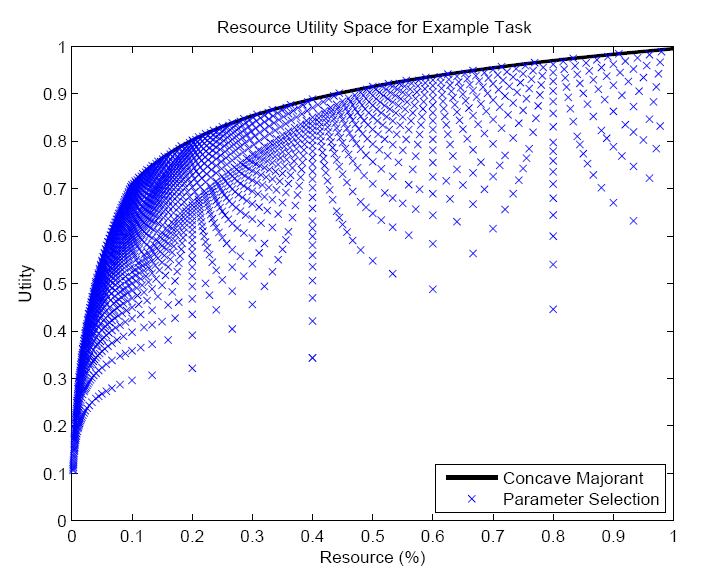MSc thesis project proposal
Use of Submodularity in Multifunction Radar Resource Management
Project outside the university
TNOMultifunction radars can perform different tasks such as surveillance, target tracking and target classification, using a single antenna aperture with an electronically controlled radar beam and waveform. To optimise the performance of a multifunction radar in a dynamic environment, a resource management function is needed that allocates the available radar resources, e.g., time, bandwidth, and receive beams, in real-time to the various tasks. The problem of finding an optimum allocation of resources is NP-hard.
Utility-based methods for resource allocation assume that a collection of tasks compete for resources with each task receiving some benefit from those resources. The goal is to allocate the resources to the radar tasks in such a way as to optimize the total utility to the user of the radar while the utilisation of the resources does not exceed their maximum, e.g., time budget and processing power. For each task, different choices for the waveform, beam shape, and processing algorithms (here referred to as control parameters) are possible. For each set of control parameters a Quality of Service (QoS) can be calculated that gives an indication of the operational performance. An example is the tracking accuracy for a target tracking task. The use of more resources for a single radar task leads to a higher QoS while the benefits gradually diminish at a higher usage of resources. The relationship between the QoS of a task and the utility of a task is modelled by a utility curve. When multiple tasks are performed simultaneously by a multifunction radar, the compound utility can be computed as the weighted sum of the task utilities with each weight representing the relative importance of a task.
Assignment
It is observed that the QoS of a radar task is a submodular function of its resources. The question is if this characteristic of the QoS function can be used to find a greedy approach to resource allocation in a multifunction radar that is not only efficient but also achieves a performance in terms of expected utility that is close to optimum.
Requirements
For this project, we are looking for a master student in either electrical engineering, applied physics, mathematics, computational science or any related study. Furthermore we are looking for a student who has a background in signal processing, basic statistical techniques, data analysis, radar, and programming skills in Matlab and/or C/C++. Strong communication (written and verbal) skills in English is a must. Expected project duration is about 9 to 12 months.
Contact
prof.dr.ir. Geert Leus
Signal Processing Systems Group
Department of Microelectronics
Last modified: 2022-10-04
